Blue House Down: A Historically-Minded Review of THE MAN STANDING NEXT
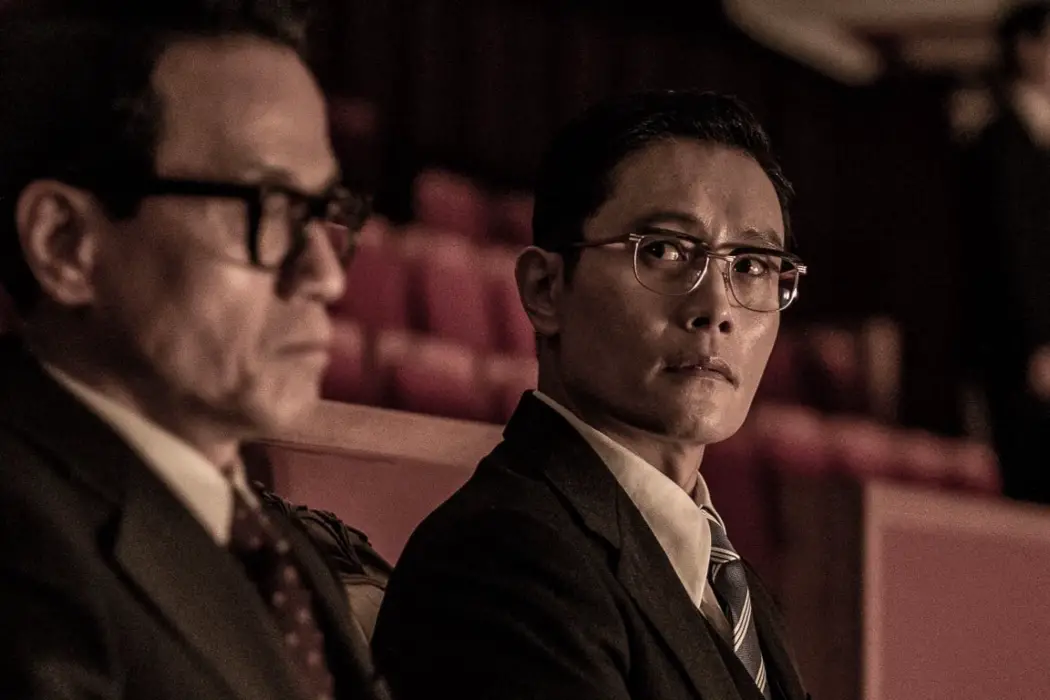
Tim Brinkhof is a Dutch journalist based in New York.…
At the center of Woo Min-ho‘s The Man Standing Next lies a political scandal that has puzzled historians for decades. It’s a riddle which the methodologies of their own discipline have thus far failed to solve, and one that we can only come close to understanding through the craft of storytelling.
My Dinner with Kim Jae-gyu
On October 26, 1979, three important people met for dinner at the Blue House which, as its name suggests, is the official home of South Korea’s head of state. These were: Park Chung-hee, the president; Cha Ji-chul, his chief bodyguard; and, finally, Kim Jae-gyu, director of the Korean Central Intelligence Agency.
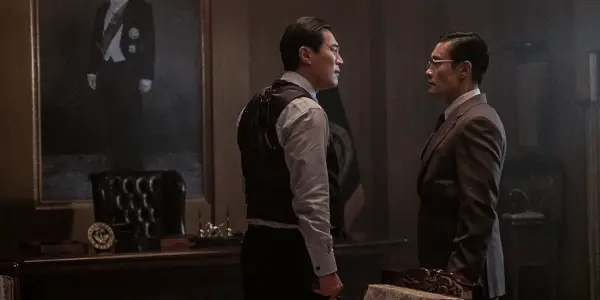
Although the purpose of the evening was to enjoy good food, expensive drinks, and the company of a few young women, the men could not restrain themselves from discussing politics. When they arrived at the question of what to do about ongoing protests in the city of Busan, Park and Cha teamed up on Kim.
When their debate heated up, the KCIA director asked to be excused and left the room only to return moments later with a loaded gun. In the span of a few minutes, Kim shot one man in the chest and the other through the head. Shortly after, the murderer drove to the military headquarters, where he was arrested, tortured, and ultimately executed for treason.
To this day experts aren’t sure why Kim pulled the trigger, and disagree on whether the killings were part of a calculated assault on the country’s stagnant regime or an impulsive act fueled for the most part by personal grievances. Both interpretations are valid, and each is explored carefully in TMSN.
The Revolution Betrayed
As far as the first hypothesis goes, Kim may very well have acted in the name of his people. Although Park’s seventeen-year-rule saw South Korea transform from a developing country into a developed one, that change had come at the cost of democratic values.
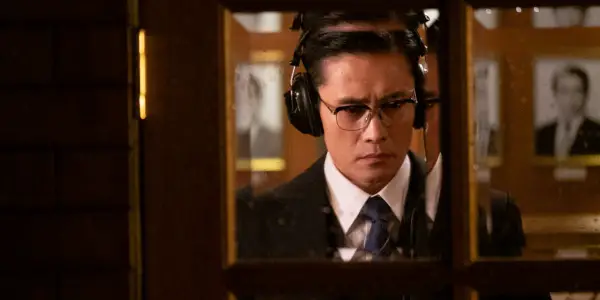
When the opposition party started to gain popularity in 1971, Park allotted as much as 10% of the national budget to fund his own reelection campaign. Although he ended up winning, the margin was alarmingly small, so he altered the constitution to replace direct voting with an indirect electoral college that he could more easily manipulate.
As if his rule had not been solidified enough already, Park also saw fit to abolish the limit on the number of presidential terms a single person could serve and made objections to his newly-implemented changes punishable by law.
In the film, Kim makes a toast before he finally pulls his gun. Raising a tall glass filled to the rim with some powerful liquor, he reminds Park of their revolutionary days, before the nation of South Korea had come into existence. The function of this parable is clear: Kim is implying that his comrade has strayed from the righteous path and that it is his duty to stop him from straying any further.
A Game of Thrones
But is this an objective evaluation of the past, or a subjective contortion of it, one that attempts to justify the crime that is about to be committed? If the second hypothesis is to be believed, Kim did what he did not to avenge his country, but his own honor, which the president may have insulted through his new-found friendship with Cha.
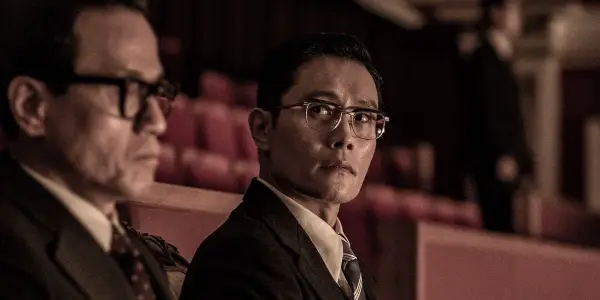
Despite entering Park’s inner circle much later than Kim, Cha was quick to replace the KCIA director as the president’s most trusted adviser. Appointed as Chief Guard the day Kim’s wife was incidentally murdered, Cha’s ruthless yet jovial demeanor made him a perfect companion to Park, whose rule had made him with more enemies than friends.
A shameless social climber, Cha had no problem risking the safety of South Korea itself if it meant earning a few favors with his boss. Whispering in Park’s ear like Wormtongue from Tolkien’s The Lord of the Rings—or Joseph Stalin from God’s The History of the Soviet Union—he used his smidge of bureaucratic power to drive a wedge between Park and Kim.
While Kim later claimed he’d first determined to kill Park when the latter altered the country’s constitution seven years ago, the sloppiness of the crime itself suggests it wasn’t planned out beforehand—at least, not carefully.
Presumably drunk, Kim’s first shot failed to kill Cha, who then hid in the bathroom. When his gun jammed, Kim had to walk all the way to the other side of the complex to get another weapon from one of his subordinates before coming back to finish the job.
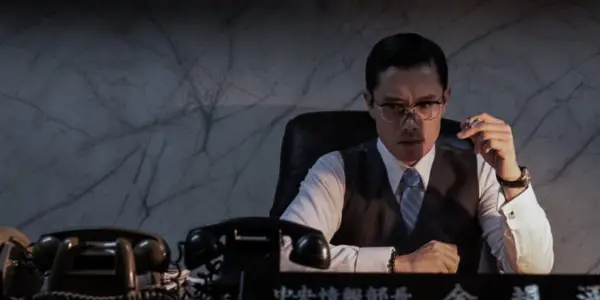
This bit, alongside the moment when a disheveled Kim falls on the floor after he slides over his victim’s blood, Woo executes in attention-grabbing, Tarantino-like fashion that offers a welcome relief from the slow-burning, dialogue-heavy parts that comprise the rest of the film.
One Difficult Decision
But even though the cinematography is a lot more sophisticated than the average Hollywood drama, it still pains me to admit—as you might have been able to guess from the first part of this review—that the backstory which surrounds TMSN is much more interesting than the film itself.
Kim’s personal relationship with President Park, while the focal point of this story, frequently takes a backseat to convoluted international political issues — one of which, for the record, is set entirely in the United States — and gets developed only as an intermission to these dry, disinteresting segments.
If you’re looking for a deep dive into the assassination of Park Chung-hee, I recommend another Korean movie from 2005 titled The President’s Last Bang. This dark comedy explores the final three hours of Park’s life and, by narrowing his focus, writer-director Im Sang-soo was able to analyze Kim’s motivations in greater detail than Woo, whose story spans the course of forty days, ever could.
If you’re a fan of high-quality political thrillers in general, I think you will have a better time with TMSN. That said, I’m still a little hesitant to recommend it – even on these grounds – and that’s because I spent the first half of the movie trying to figure out what was going on, and the second wondering why any of it mattered.
Whether that’s the result of Woo‘s incompetence as a filmmaker, or my laziness as a viewer, I’m not exactly sure. But if it is the latter, that still doesn’t change experience all that much — so have your pick.
Watch The Man Standing Next
Does content like this matter to you?
Become a Member and support film journalism. Unlock access to all of Film Inquiry`s great articles. Join a community of like-minded readers who are passionate about cinema - get access to our private members Network, give back to independent filmmakers, and more.
Tim Brinkhof is a Dutch journalist based in New York. He studied history and literature at New York University and currently works as an editorial assistant for Film Comment magazine. His writing has been published in the New York Observer.













